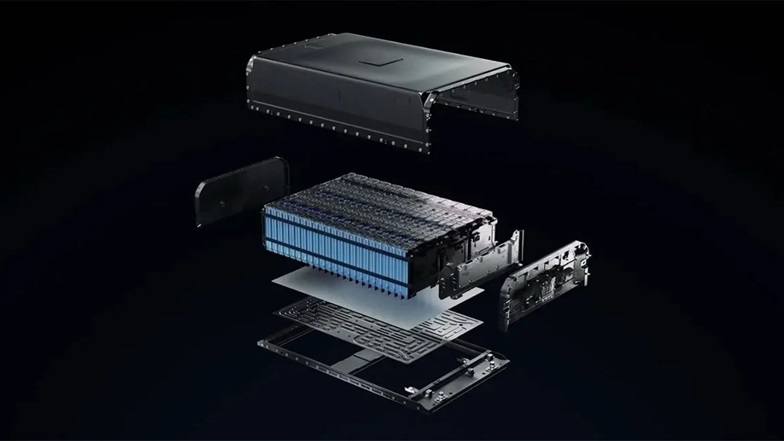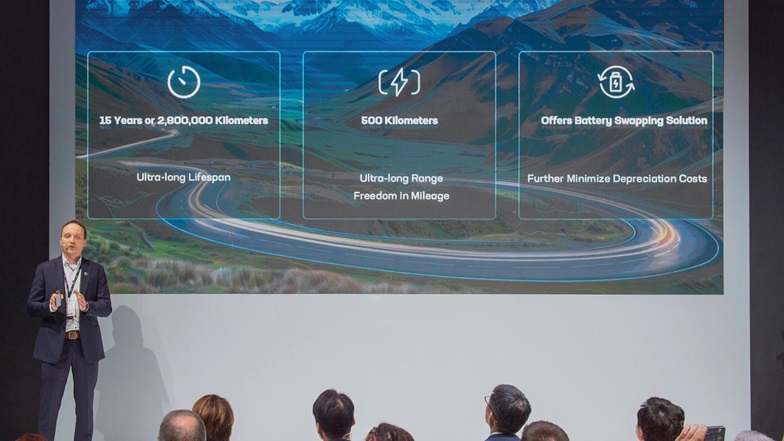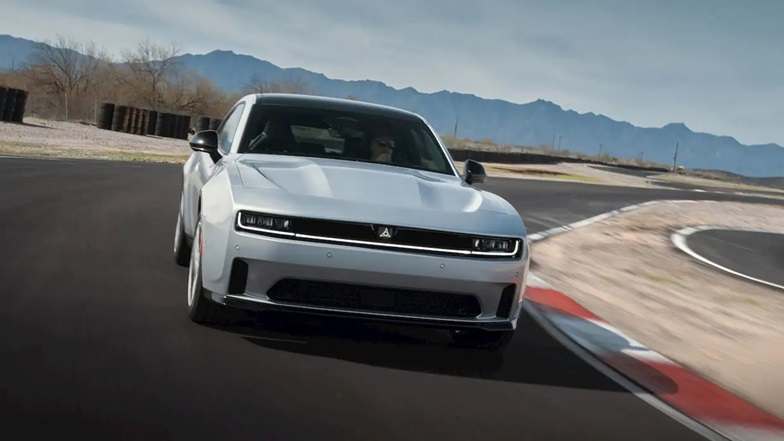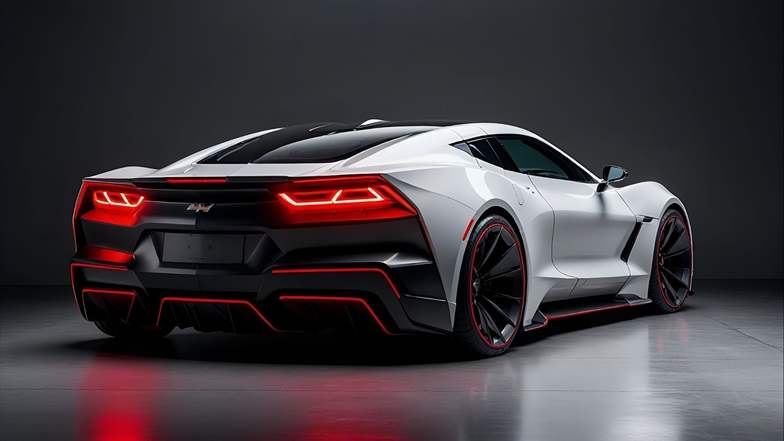CATL introduced its new-generation Tectrans Bus Edition Electric Bus batteries packs, promising game-changing improvements in durability, charging speed, and energy efficiency.
As electric vehicles (EVs) continue to reshape the transportation industry, electric buses and trucks are gaining traction as a key solution for reducing emissions and pollution in urban areas. One company at the forefront of this transformation is CATL, a major Chinese battery supplier, known for pushing the boundaries of EV battery technology. At the IAA Transportation 2024 event in Germany, CATL introduced its new-generation Tectrans Bus Edition battery packs, promising game-changing improvements in durability, charging speed, and energy efficiency.

Here’s a breakdown of what makes these new batteries a pivotal innovation for electric buses.
Key Highlights of CATL’s Tectrans Bus Edition Batteries
- Longer Lifespan: These new battery packs are designed to last up to 15 years, a 20% improvement over previous models.
- Higher Energy Density: CATL has managed to increase the energy density by 22% by volume and achieve 175 watt-hours per kilogram (Wh/kg) by weight.
- Superfast Charging: The Superfast Charging Edition can charge the battery up to 70% in just 15 minutes.
- Wide Compatibility: CATL is currently in discussions with 13 different vehicle manufacturers to integrate these batteries into up to 80 different bus models.
Longevity and Durability: Extending Battery Life by 20%
One of the most remarkable aspects of CATL’s new battery technology is its ability to last significantly longer than current battery systems. The company claims that its Tectrans Bus Edition battery packs can last up to 15 years or 1.5 million kilometers (nearly a million miles), a 20% extension over previous-generation lithium iron phosphate (LFP) batteries. For fleet operators, this extended life means lower long-term costs and fewer battery replacements over the lifetime of the bus.
Additionally, CATL offers a Long Life Edition that promises up to 2.8 million kilometers (1.74 million miles), ensuring that these batteries will outlast even the most demanding operational requirements. This edition also offers the flexibility of battery swapping options, which could prove essential in densely populated areas or for long-haul routes where downtime needs to be minimized.
Important Point: The 15-year lifespan of CATL’s new batteries can reduce operational costs for bus fleets, making them a more viable option for long-term investments.
Superfast Charging: Minimizing Downtime for Fleet Operators
One of the biggest concerns for electric bus operators is charging time. Long charging cycles mean less time on the road, which translates to reduced operational efficiency. CATL’s Superfast Charging Edition directly addresses this issue by offering a 70% charge in just 15 minutes. This could be a game-changer for fleet operators who need their buses to spend more time transporting passengers and less time sitting idle at charging stations.
However, achieving such rapid charging will require megawatt charging infrastructure, which is currently being developed but not yet widely available. Once in place, this infrastructure could revolutionize how electric buses operate, making them more competitive with traditional diesel-powered buses in terms of uptime.
Takeaway: With superfast charging, CATL’s batteries offer a significant advantage for fleet operators, reducing downtime and increasing operational efficiency.
Energy Efficiency and Design: A 22% Boost in Energy Density
Another key innovation in CATL’s new battery packs is the increase in energy density. The Tectrans Bus Edition battery packs boast a 22% increase in energy density by volume, thanks to a new high-pressure-density cathode design. This increase means more energy can be stored in the same space, which is critical for buses that need to cover long distances between charges.
The battery packs come in sizes up to 600 kWh, which gives them ample capacity for longer-distance routes, making them ideal for public transit systems that need reliable, energy-efficient solutions. The improved design also includes features to equalize temperatures across the battery pack, helping to ensure consistent performance even under heavy use.

Energy Density and Charging Speeds
| Feature | CATL Tectrans Bus Edition | Traditional LFP Batteries |
|---|---|---|
| Energy Density (Wh/kg) | 175 Wh/kg | 140-150 Wh/kg |
| Charging Time (70%) | 15 minutes (Superfast Edition) | 1-2 hours |
| Lifespan | 15 years | 12 years |
| Maximum Capacity | 600 kWh | 500 kWh |
The Bigger Picture: Reducing Emissions with Electric Buses
While electric cars tend to dominate the headlines, electric trucks and buses are playing an equally crucial role in reducing emissions, particularly in urban areas where air pollution poses significant health risks. According to a 2021 study, transitioning to electric trucks and buses could save 57,000 lives by 2050 by lowering air pollution and its associated health problems.
CATL’s focus on the commercial vehicle sector with its Tectrans brand—launched in July 2024—reflects the growing demand for electric solutions in public transportation. The introduction of these new batteries could accelerate the adoption of electric buses worldwide, providing a cleaner, more efficient option for public transit.
Takeaway: Switching to electric buses with CATL’s new battery technology could lead to significant environmental and public health benefits, especially in urban areas.
Competition and Market Impact
CATL is not the only player in the electric bus battery market. Other companies, such as BYD, Proterra, and even Mercedes-Benz, have already made strides in producing electric buses. Mercedes-Benz, for example, has developed electric buses that utilize solid-state batteries, marking the first use of this advanced battery technology in a production vehicle.
However, CATL’s experience in the passenger-car EV battery business—coupled with its cell-to-pack technology—gives it a significant advantage. By eliminating conventional battery modules, CATL’s tech can deliver more energy in the same space, which could make its batteries more appealing to manufacturers looking for cutting-edge solutions.
CATL is currently in talks with 13 vehicle manufacturers to integrate the Tectrans Bus Edition battery into up to 80 different models, demonstrating its broad potential impact across the industry.
Important Point: CATL’s new batteries offer competition to established players like BYD and Proterra, potentially reshaping the electric bus market.
A Step Forward for Electric Buses
The introduction of CATL’s Tectrans Bus Edition battery marks a significant leap forward in the development of electric buses. With longer lifespans, superfast charging, and higher energy efficiency, these new batteries could help overcome some of the key barriers to the widespread adoption of electric buses in public transit systems.
Final Thought: As cities around the world look to reduce emissions and improve air quality, CATL’s innovative battery technology could play a pivotal role in accelerating the shift to electric buses.
PEOPLE WHO READ THIS, ALSO READ




